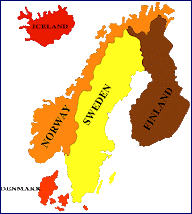Art of influence
 The European Commission has defended its new voluntary register of lobbyists amid criticism from groups who say it is not transparent enough. "The idea is that people adhere to principles and commit to increased transparency," said a spokeswoman for Commission Vice-President Siim Kallas. An estimated 15,000 lobbyists seek to influence EU legislation. Critics want more regulation of their activities. The European Parliament has called for a mandatory register of lobbyists covering not only the parliament itself, but also the Commission and the Council of Ministers, which together approve legislation.
The European Commission has defended its new voluntary register of lobbyists amid criticism from groups who say it is not transparent enough. "The idea is that people adhere to principles and commit to increased transparency," said a spokeswoman for Commission Vice-President Siim Kallas. An estimated 15,000 lobbyists seek to influence EU legislation. Critics want more regulation of their activities. The European Parliament has called for a mandatory register of lobbyists covering not only the parliament itself, but also the Commission and the Council of Ministers, which together approve legislation.
The three legislative branches are setting up a joint working group to establish a common register, which the parliament hopes will be in place by the next European elections, in a year's time. "We want a one-stop shop. Lobbyists will have to register only once and it will be de facto mandatory," Ms Rampi said. She said MEPs were demanding that lobbyists obtain access badges to enter the parliament's premises - and that would oblige them to register on the joint list.
The commission's register sets out different financial disclosure requirements, depending on the nature of the lobby group. Consultancy firms and law firms lobbying on behalf of others are expected to state their turnover related to lobbying of all EU institutions, based on their latest annual accounts. But "in-house" lobbyists - including companies, professional associations and trade unions - can simply provide an estimate of the cost of their lobbying, which does not have to satisfy accountancy rules. Non-governmental organisations and think-tanks have to publish their total budget and main sources of funding.

















